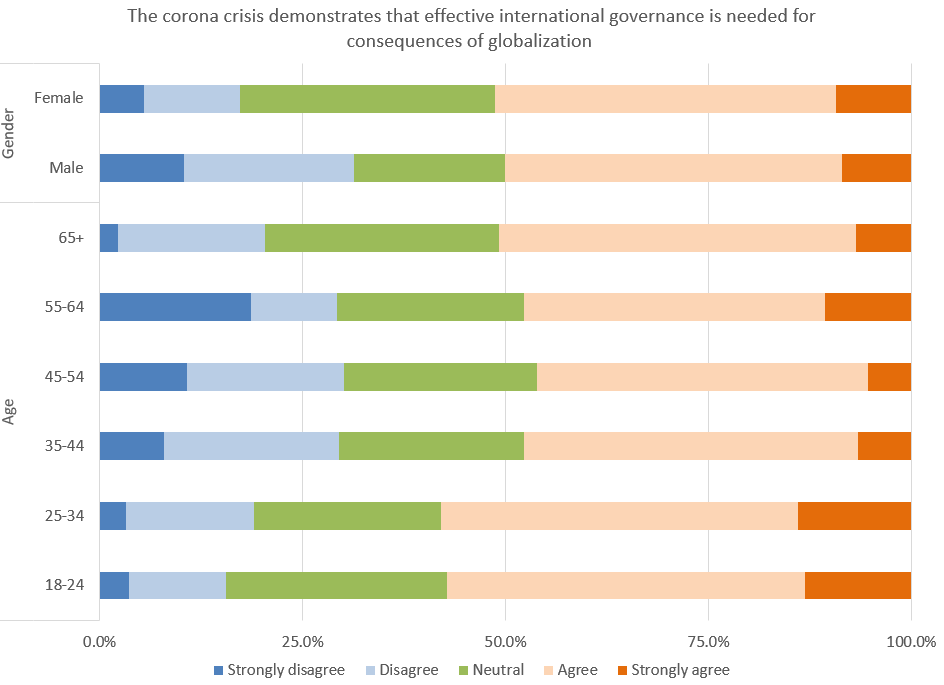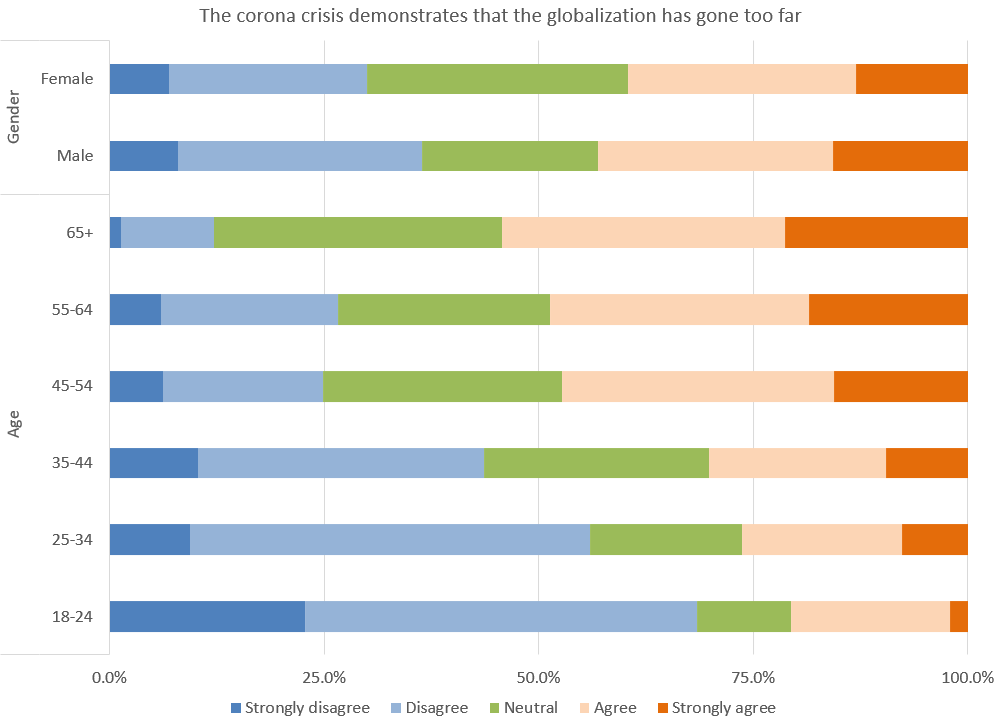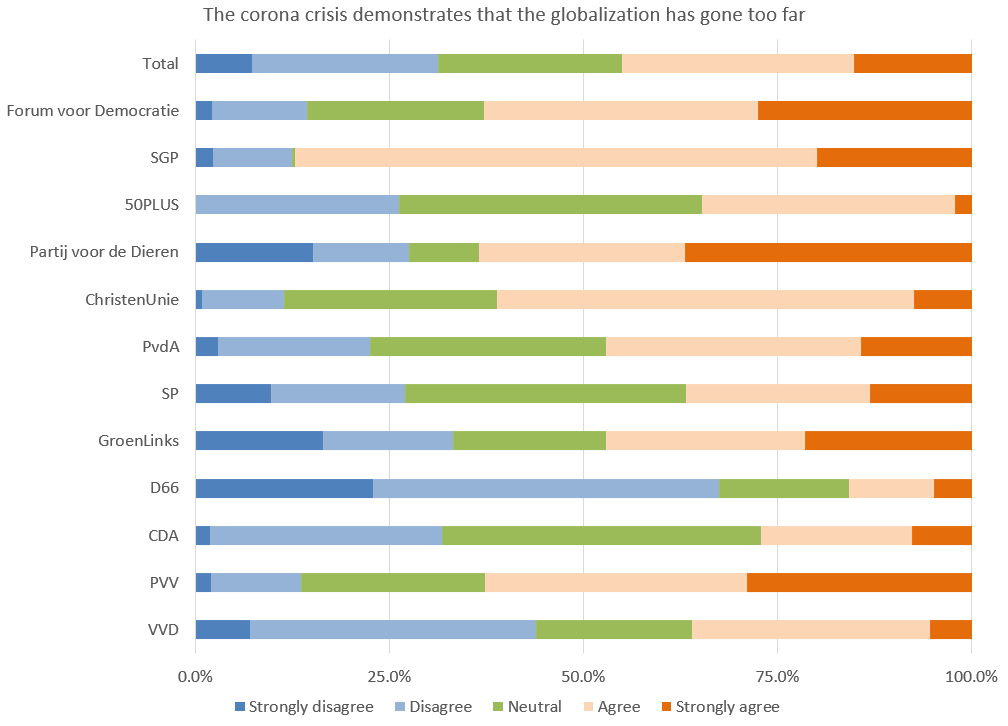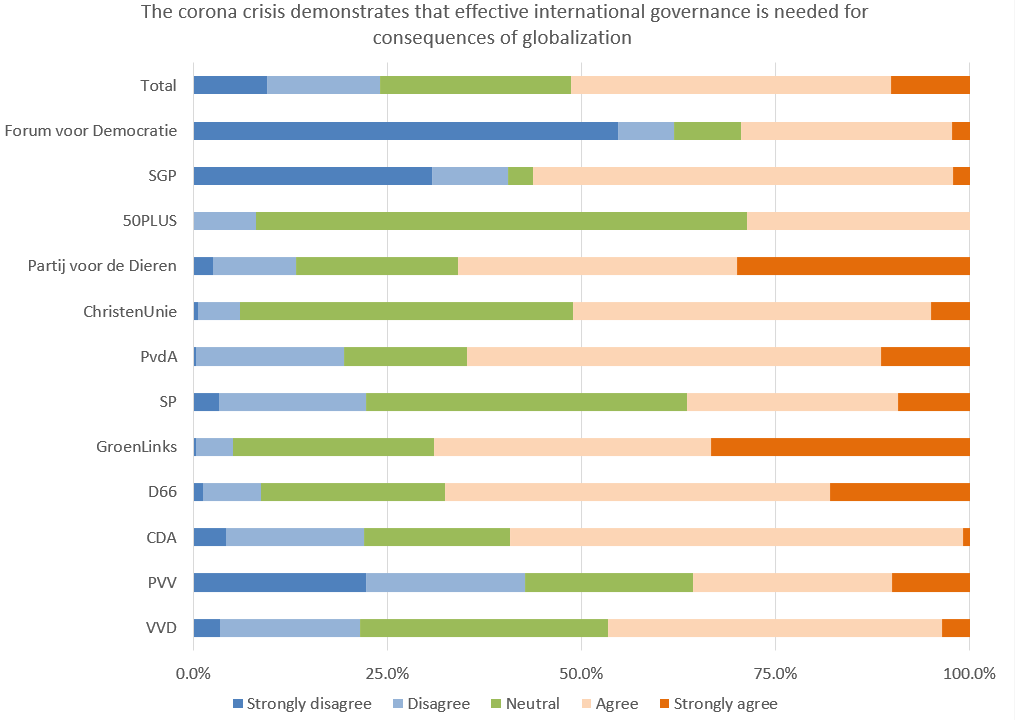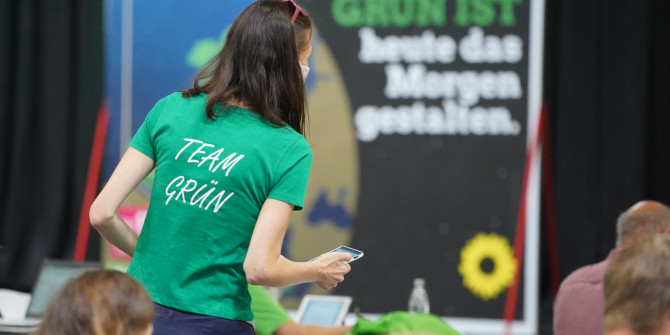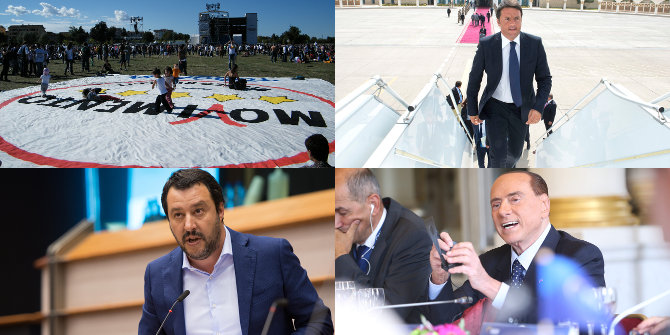The travel restrictions implemented across the world to tackle Covid-19 have led some observers to ask whether the era of globalisation might be coming to an end. Michal Onderco and Wolfgang Wagner present evidence from a new survey of the views of Dutch citizens on Covid-19 and globalisation. They find that while many citizens believe globalisation has gone too far, there remains strong demand for effective international governance.
The Covid-19 pandemic is not only a challenge for countries’ health care systems but also for their international orientation and thus for globalisation. Because open borders and international trade and travel facilitated the spread of the virus, governments responded by restricting travel and closing borders, and debates about a re-nationalisation of the production of strategic goods gained momentum. The pandemic also fuelled criticism of international organisations such as the World Health Organization, and in a number of countries citizens expressed support for “going it alone” rather than coordinating with other countries. Will the Covid-19 pandemic thus usher in the end of globalisation as we know it, i.e. a process of ever further de-nationalisation and growing transnational movement of goods and people?
The answer lies not only in government policies but also in citizens’ interpretation of the pandemic, its links to globalisation and support for international, rather than national policy responses. In a recent survey conducted in December 2020 by KiesKompas, a leading Dutch pollster, we asked over 6,700 Dutch citizens about their views. The Dutch public is a particularly interesting one because the Netherlands, home to a key global shipping hub, has been amongst the key beneficiaries of free trade. At the same time, the country experienced a high death toll due to Covid-19 and implemented a somewhat less strict lockdown during the first wave compared to other European countries. During the second wave in autumn 2020, the measures adopted by the government were stricter and came into effect earlier than in other European countries. The country also experienced a death toll lower than that of other European countries in this period.
The results of our survey offer a glimpse into how the Dutch public thinks about globalisation and its future. We asked the respondents two key questions: whether the Covid-19 crisis demonstrates that globalisation has gone too far and whether the pandemic demonstrates the need for more global governance. The first question taps into a frequent criticism of globalisation: that globalisation has somehow gotten out of control. The second taps into a frequent panacea offered by populists: withdrawal from the world. We asked about this in reverse: populists often argue that because international governance does not reflect the will of ordinary people, there should be less of it, however we, in contrast, asked citizens whether they thought there should be more of it.
About two in five respondents agreed that globalisation has gone too far; and about one third disagreed with this view. However, a slight majority of our respondents agreed that more international governance is needed, and only about one quarter was opposed. The patterns were curiously similar across genders. Although the support for international governance was strongest among the young participants (under the age of 35), in all age groups a large plurality was in favour of more international governance.
Figure 1: Views of Dutch citizens on Covid-19 and the need for international governance
Source: Compiled by the authors based on Krouwel, A., Etienne, T., Kutiyski, Y., van Prooijen, J.W., Onderco, M., Zwaan, R. Verkoeijen, P., Amodio, D., Traast, I. and D. Schultner (2020). Kieskompas Survey Data: Public Opinion in the Netherlands during the COVID-19 Pandemic.
The age effect was also important when asking respondents whether globalisation has gone too far: while among those under the age of 44, a plurality disagreed with this view, the elder respondents thought the pandemic demonstrated that globalisation has gone too far. This is not entirely surprising, as economists have demonstrated in the past that a higher age is associated with negative attitudes towards globalisation. Bertelsmann Stiftung, in a July 2020 survey, similarly found that with age, respondents became more critical of globalisation.
Figure 2: Views of Dutch citizens on Covid-19 and whether globalisation has gone too far
Source: Compiled by the authors based on Krouwel, A., Etienne, T., Kutiyski, Y., van Prooijen, J.W., Onderco, M., Zwaan, R. Verkoeijen, P., Amodio, D., Traast, I. and D. Schultner (2020). Kieskompas Survey Data: Public Opinion in the Netherlands during the COVID-19 Pandemic.
What was, however, the most interesting to us, was the strong effect of partisan ideology on individuals’ views. This is particularly relevant, as the Netherlands is gearing towards a general election in March this year. Not surprisingly, those who strongly agreed with the notion that Covid-19 demonstrates that globalisation has gone too far could mostly be found among the voters of the far-right. However, many voters on the left also shared this view. Agreement with the statement that globalisation has gone too far was highest among supporters of the religious right SGP (87%), the animal-rights PvdD (64%), the far-right PVV and FvD (both 63%), followed by the conservative CU (61%). In contrast, the voters of the liberal D66 were strongly opposed to such a view (68%). The supporters of two other current coalition parties – the liberal VVD of Prime Minister Mark Rutte and the Christian democratic CDA – were split on the issue.
Figure 3: Views of Dutch citizens on Covid-19 and whether globalisation has gone too far (by party)
Source: Compiled by the authors based on Krouwel, A., Etienne, T., Kutiyski, Y., van Prooijen, J.W., Onderco, M., Zwaan, R. Verkoeijen, P., Amodio, D., Traast, I. and D. Schultner (2020). Kieskompas Survey Data: Public Opinion in the Netherlands during the COVID-19 Pandemic.
At the same time, pluralities of voters for all parties, except the far-right, thought that there is now more need for international governance. That voters for the far-right reject the need for international cooperation is not entirely surprising. However, the agreement across the rest of the political spectrum demonstrates the breadth of support for international cooperation among the Dutch. This support was highest among supporters of the GreenLeft (69%), the animal-rights party PvdD (66%), the social democratic PvdA (65%) and the left-liberal D66 (68%). Curiously, we also found that the more citizens think that globalisation has gone too far, the more they demand effective international governance. For proponents of globalisation, these results are encouraging because a sober view on the dark side of globalisation does not translate into a rejection of global governance.
Figure 4: Views of Dutch citizens on Covid-19 and the need for international governance (by party)
Source: Compiled by the authors based on Krouwel, A., Etienne, T., Kutiyski, Y., van Prooijen, J.W., Onderco, M., Zwaan, R. Verkoeijen, P., Amodio, D., Traast, I. and D. Schultner (2020). Kieskompas Survey Data: Public Opinion in the Netherlands during the COVID-19 Pandemic.
We interpret the results as a textbook example of a “rational public” that is not driven by moral panic but geared towards a problem-solving approach to international public health. However, the data also suggest that ideological pre-commitments are influential and that the debate about globalisation will develop further, rather than disappear.
Note: This article gives the views of the authors, not the position of EUROPP – European Politics and Policy or the London School of Economics. Featured image credit: European Council


